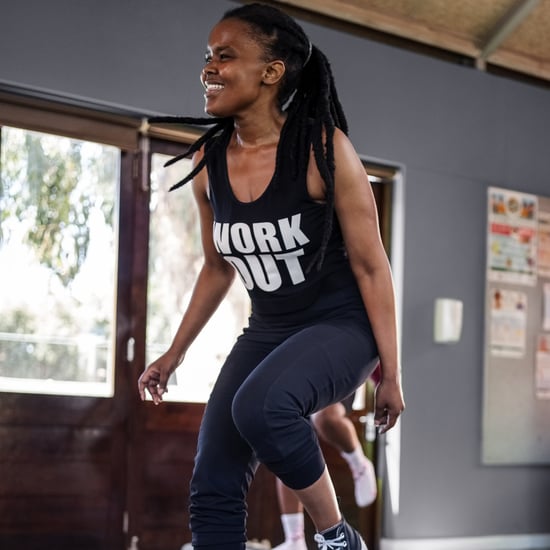How Long Should My Workout Be to Lose Weight?
250 Minutes a Week of Moderate-Intensity Exercise May Be the Sweet Spot For Weight Loss

There are a lot of things to consider when you're working out, especially if your goal is weight loss. There isn't one perfect exercise, workout, or diet that will guarantee weight loss, but generally speaking, experts have found that incorporating strength training and cardio into your workout routine (along with implementing a nutritional plan tailored to your needs) can help.
"For weight loss, you need 250 minutes, or more, of physical activity in at least the moderate-intensity category in order to show appreciable weight loss," Heather Milton, MS, RCEP, CSCS, an exercise physiologist clinical specialist at NYU Langone's Sports Performance Centre, told POPSUGAR. We'd be remiss if we didn't state that factors such as the amount of sleep you get, your genetics, and other variables, like stress, also play a critical role in weight loss.
If you're going from sedentary to physically active, "You're going to see changes, especially if you pair it with diet," Heather explained. As your body acclimates to exercise, the goal is to increase the amount of time you're physically active to a minimum of 250 or 300 minutes of moderate-intensity exercise (for example, walking at a brisk pace, hiking, biking, dancing, aerobics, and weight training) per week, Heather continued. You may be tempted to hit the gym for long durations of time, but Heather advises against trying to reach this time goal in one or two sessions. Instead, she recommends splitting it up throughout the week.
It's often assumed that doing more aerobic exercise, such as running, can help with weight loss. And although cardio can help you lose weight, Heather said, "There's more literature coming out for weight loss, especially if you pair it with diet, that if you can consistently do three days per week of resistance training, whole-body resistance training, that can have a very good effect for helping to lose weight because you're improving your metabolism at the same time you're burning fat." Resistance training is beneficial because it allows you to preserve your muscle mass while you're losing fat, which means your metabolism isn't affected, Heather explained.
It may take some trial and error to figure out a workout plan that works for you, and we recommend easing yourself into a fitness routine, especially if you're a beginner, then advancing the intensity and frequency as you begin to feel more comfortable with training. If you're looking for a more individualized plan, we suggest working with experts such as personal trainers, exercise physiologists, and registered dietitians to develop a program that's best for your lifestyle and goals.







